Have you ever wondered why so many chefs and home cooks valued Shun knives? They are one of the top kitchen knife brands in the world.
We also featured their Shun Classic 6-Piece Slim Knife Block and the best 7 Shun knives under $500. We love Shun products, and we highly recommend them.
But why do we think this knife is a good investment? What exactly is the big deal about their products? In this article, we will learn more about this well-known brand.
Company Background of Shun Knives
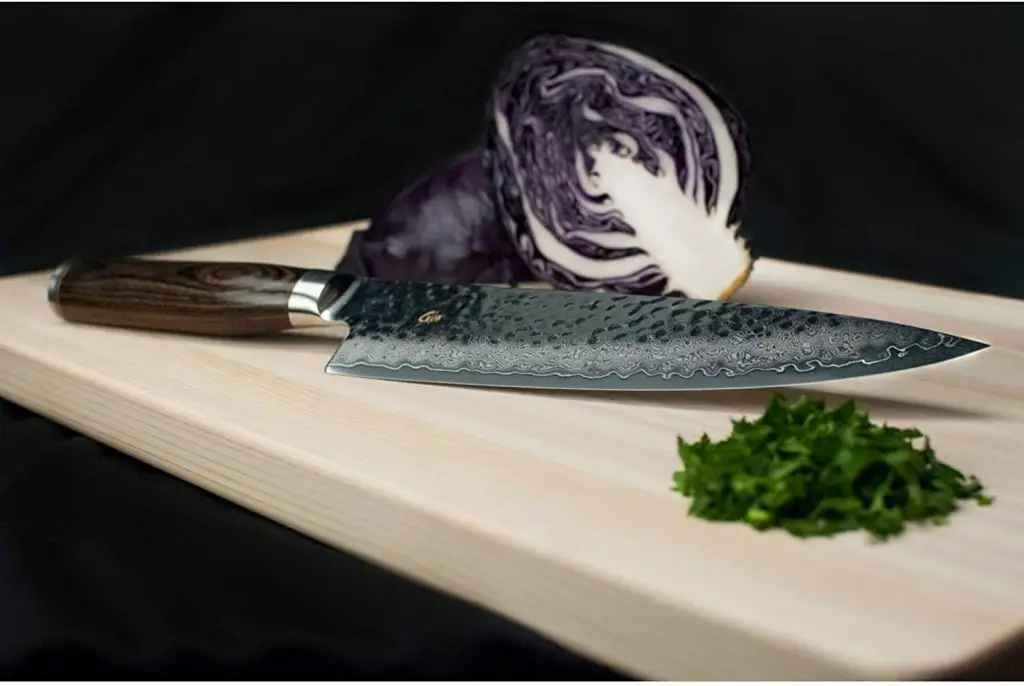
KAI Group, Shun’s parent company, was formed in Seki City, Japan, in 1908. The company started off making razors and folding knives but eventually expanded into kitchen cutlery.
Shun Cutlery was formed in 2002 by the KAI Group to bring Japanese-style knives to Western markets. Before Shun, home cooks used large European-style knives in western markets. Shun being the first to introduce Japanese-style blades to the rest of the world.
Shun uses modern, premium materials and state-of-the-art technology to bring quality to millions of professional chefs and devoted home cooks throughout the world while maintaining their historical traditions of handcrafted quality.
Shun knives are now sold and distributed in over 30 countries. It has received awards for quality and creativity.
History of Shun Knives
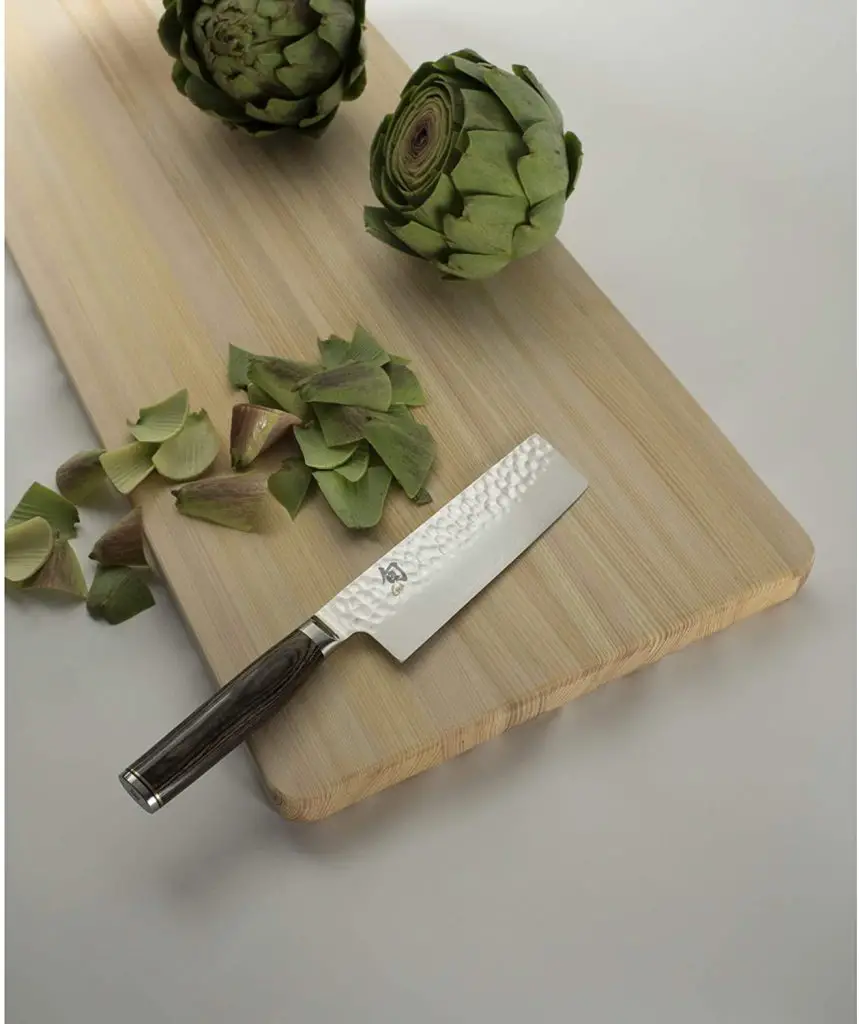
While the Shun brand is relatively new, it has a long and successful history. Saijiro Endo first opened his store in Japan’s legendary Seki City over 112 years ago, in a city with a blade-making legacy dating back over 800 years. The company started with folding knives, then razors, and eventually kitchen cutlery. The company was renamed Kai Cutlery, and it is currently known as the Kai Group.
Kai President and CEO Koji Endo, a direct descendent of the company’s founder, conceived the innovative idea of delivering high-quality Japanese cutlery to the US and European markets. He gave the company the name “Shun,” which refers to the Japanese practice of eating fresh, seasonal foods, and designed the logo that is still in use today.
The Advantages of Shun Knives
Now that you’ve learned about the company’s history and humble beginnings in knifemaking let’s move on to the advantages of their knives.
Blade
The blade’s materials are highly durable and expertly handcrafted to provide a high-quality experience for the user. At least 100 individual steps are required to produce each piece of this premium kitchen cutlery.
Sora series is the cheapest and constructed of stainless steel with a sharper VG10 steel edge. The Dual Core series is more expensive, but it combines two high-quality steels in a long forging process to produce the sharpest and most durable blade possible.
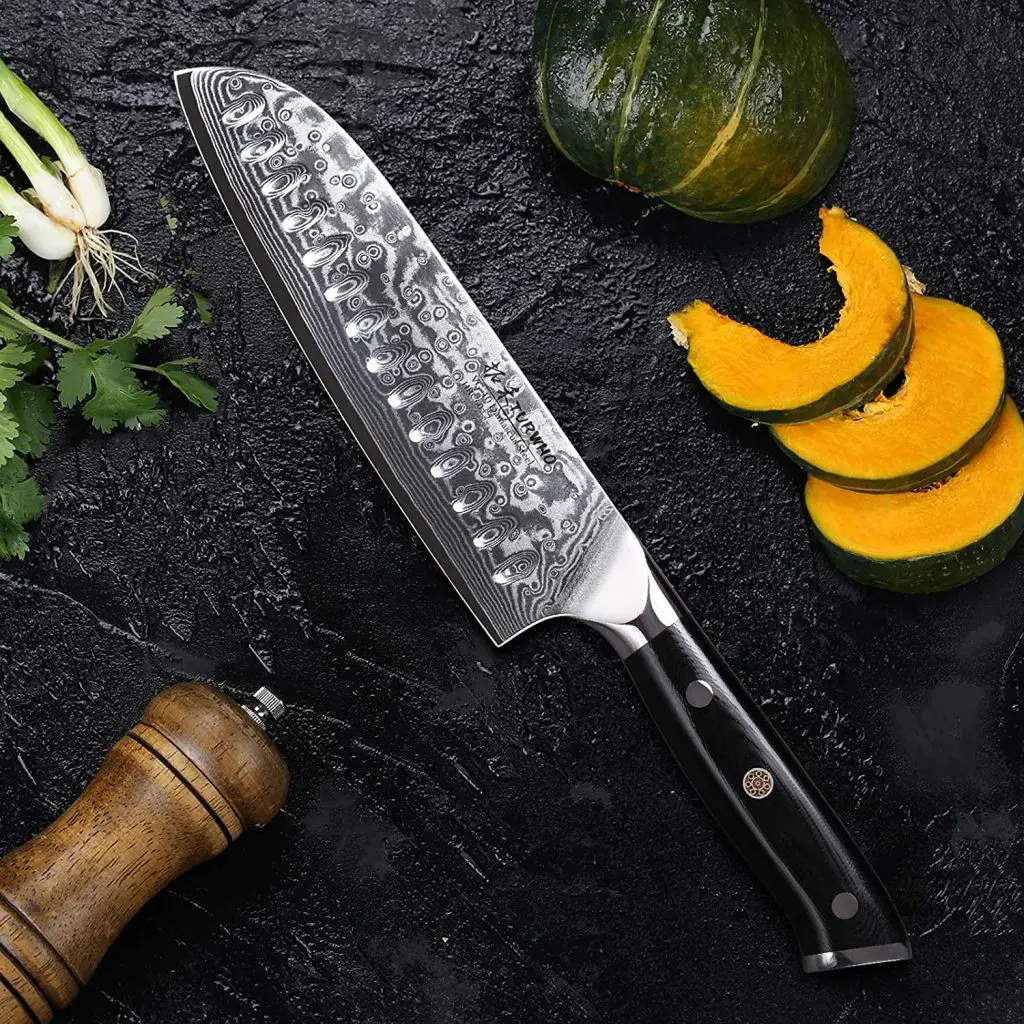
Handle
PakkaWood, a strong hardwood and resin composite, is used in most Shun handles. Despite being treated with resin, the wood appears to be natural hardwood.
Tagayasan, another name for wenge wood, is used in the Kanso collection’s handles. This dark-grained wood is tough and long-lasting.
The Sora series used polypropylene/thermoplastic elastomer handles. Although it lacks the elegance of wood, this synthetic material has a slight texture that gives a good grip.
Edge Grind
Shun’s knives have double-beveled edges on most of the blades. The knife is sharpened to an angle in a double-bevel edge grind. It’s long-lasting, sharpens easily, and can handle any cutting work.
The Sora collection, on the other hand, features San Mai edges. A San Mai edge has a firm steel core surrounding softer steel, similar to a double-bevel edge.
The knife has a single-bevel edge on the Dual-Core Yanagiba. The blade is ground to an extremely sharp angle on one side of a single-bevel edge, only found on Shun’s Dual-Core Yanagiba knife.
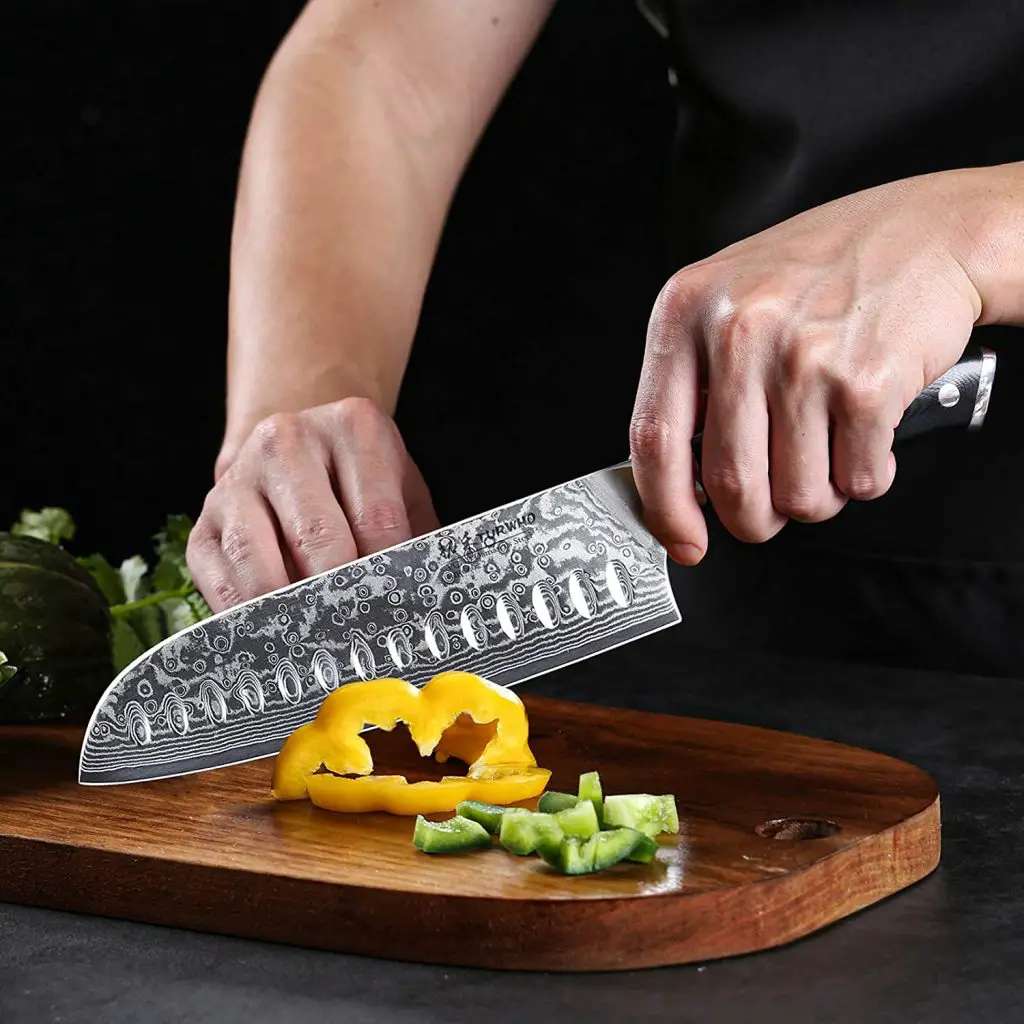
Single-bevel edges are sharper than double-bevel edges, although they are more subject to chipping. Slicing raw fish and meat is a breeze with this grind.
Performance
Shun cutlery delivers everything you might expect in a kitchen knife in terms of performance. These knives are well-balanced, sharp, and durable.
Shun knives are lightweight, making them easy to maneuver and reducing the risk of wrist fatigue or injury when chopping for extended periods. They do not, however, feel as solid in hand as heavier blades. They also won’t cut through whatever you’re cutting with the same steadiness as heavier blades.
Lifetime Warranty and Sharpening Services
Shun knives have a limited lifetime warranty. Shun will repair or replace any damaged or defective blade due to faulty manufacture or material. They also cover the knife’s wood accent for 90 days.
Shun’s non-serrated knives come with a lifetime sharpening service. So, if you ever need your Shun knife sharpened, mail it to Shun, and they’ll sharpen it for free, but you’ll have to cover the shipping costs.
If you don’t want to spend a lot of money on shipping fees to sharpen your Shun knives. Then investing in a knife sharpener is the best alternative for you. We’ve also got you covered when it comes to using a whetstone to sharpen your knife.
The Disadvantages of Shun Knives
Shun knives, like any other brand, have their own set of disadvantages. Before buying one, you should be aware of the disadvantages of these knives.
Expensive
Shun knives have a reputation for being pricey. If cost is your only issue, we recommend purchasing one piece at a time. Starting with a chef’s knife and a paring knife, we recommend building your collection from there.
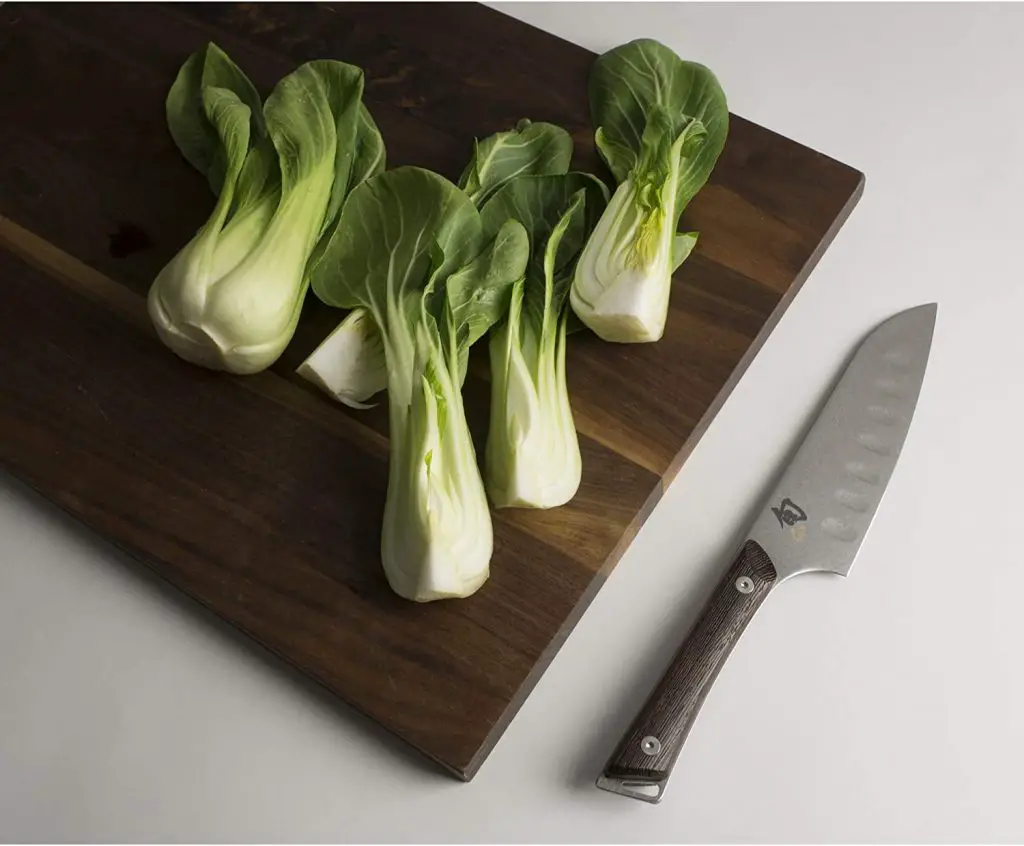
Prone to Chipping
Shun’s blades are prone to chipping. Avoid slamming the edge against hard surfaces like ceramic, glass, or marble to avoid chipping. Stick to wooden cutting boards and slice in a smooth motion.
Wood Handles
A wood handles require special care and maintenance. In addition, they are more susceptible to fading and moisture damage than synthetic handles. If you don’t want to deal with the extra maintenance, the Shun Sora line, which has synthetic handles, is a good option.
Lightweight
Shun knives are lightweight. While this is useful for repetitive tasks, driving the blade through thicker or harder ingredients. A Wusthof knife, on the other hand, is heavy enough to do the work for you.
The Different Shun Knife Collection
Shun has several Japanese-style knife collections, each with its materials, styles, and price range.
Shun Premier Grey
The PakkaWood Handle on the Shun Premier Grey provides a comfortable grip. PakkaWood is long-lasting and bacteria-resistant. The complete composite tang adds strength and balance to the handle.
Shun Classic Blonde
The 69-layer Damascus-clad blades and PakkaWood handles in a light, and attractive natural wood tone are featured in the Shun Classic Blonde collection. They’re razor-sharp, long-lasting, perfectly balanced, and simply stunning to look at.
Shun Classic
It is the original Shun knives and the first Japanese-style knives available in North America to a broader audience. Shun Classic blades are lighter, have razor-sharp edges, and are made of advanced steel. Shun Classic gives the smooth control of a traditional Japanese handle rather than the hefty control of Western handles.
Shun Classic provides a huge range of traditional and innovative blade forms, ensuring that you can find the perfect handcrafted knife for any kitchen activity.
Shun Dual Core
Shun Dual Core knives have a layered and wrapped Damascus blade constructed of two high-grade stainless steel. The herringbone pattern is then hot forged into the laminated steel, allowing the layers to alternate along the cutting edge.
Shun Premier
Hand-hammered blades and walnut-colored PakkaWood handles differentiate the Shun Premier series, which evokes the beauty of traditional hand-forged knives. Premier delivers excellent handling. The blades are lightweight and razor-sharp, making them quick and precise. The handle’s palm swell nestles into the hand for secure control—ideal for both tiny and large hands.
Shun Kanso
Kanso is a design principle derived from the Zen philosophy. It means “simplicity” by focusing entirely on what is most important. It has high-performance steel, a razor-sharp edge, excellent balance, and precision cutting control when it comes to Shun’s Kanso cutlery.
Shun Sora
Sora has a san-mai edge, which is a traditional samurai sword-making style in which the cutting edge is made of high carbon VG10 steel, and the upper is made of Japanese 420J stainless steel.
Shun Seki Magoroku
The Seki Magoroku Redwood is a chef’s knife with sturdy stainless steel construction and traditional Japanese features. The line contains single-edged and double-edged blades with highly polished blades that share the common denominators of steady and well-balanced functionality and sharpness. A simple shape combined with traditional Japanese aesthetics in this design.
An in-depth look at the whole Shun knife collection can be found in the video below.
People also ask
Do Shun knives come with sheaths?
Since most customers keep their knives in a block, Shun ships them in cardboard sheaths until they find permanent storage for them. The company says that this is to cut down on the amount of trash made by their product.
Can you use an electric sharpener to sharpen Shun knives?
Yes. Just make sure the angle of the electric knife sharpener is 16 degrees. Use one of the many sharpening tools made by Shun for the best results.
Why do Shun Knives edges chip?
If you don’t take good care of your shun knives, they will probably chip. For example, if you cut on a hard surface or slam the knife down hard, the edge can break. Use a soft wooden cutting board and a Shun knife to cut through the food, letting the sharp edge do the work.
Conclusion
Shun knives are known for their high-quality blades. The knives are well-made, appealing to the eye, and razor-sharp.
Shun knives’ most common complaint is that the edges chip easily due to the steel’s toughness. You can avoid it with proper care and technique.
When cutting, employ a forward and back motion to avoid chipping. Don’t bang your knife into your cutting board by cutting straight down. Chips can also be avoided by properly storing your knife.
Do you believe Shun knives are worth their value? Let us know in the comments section.


